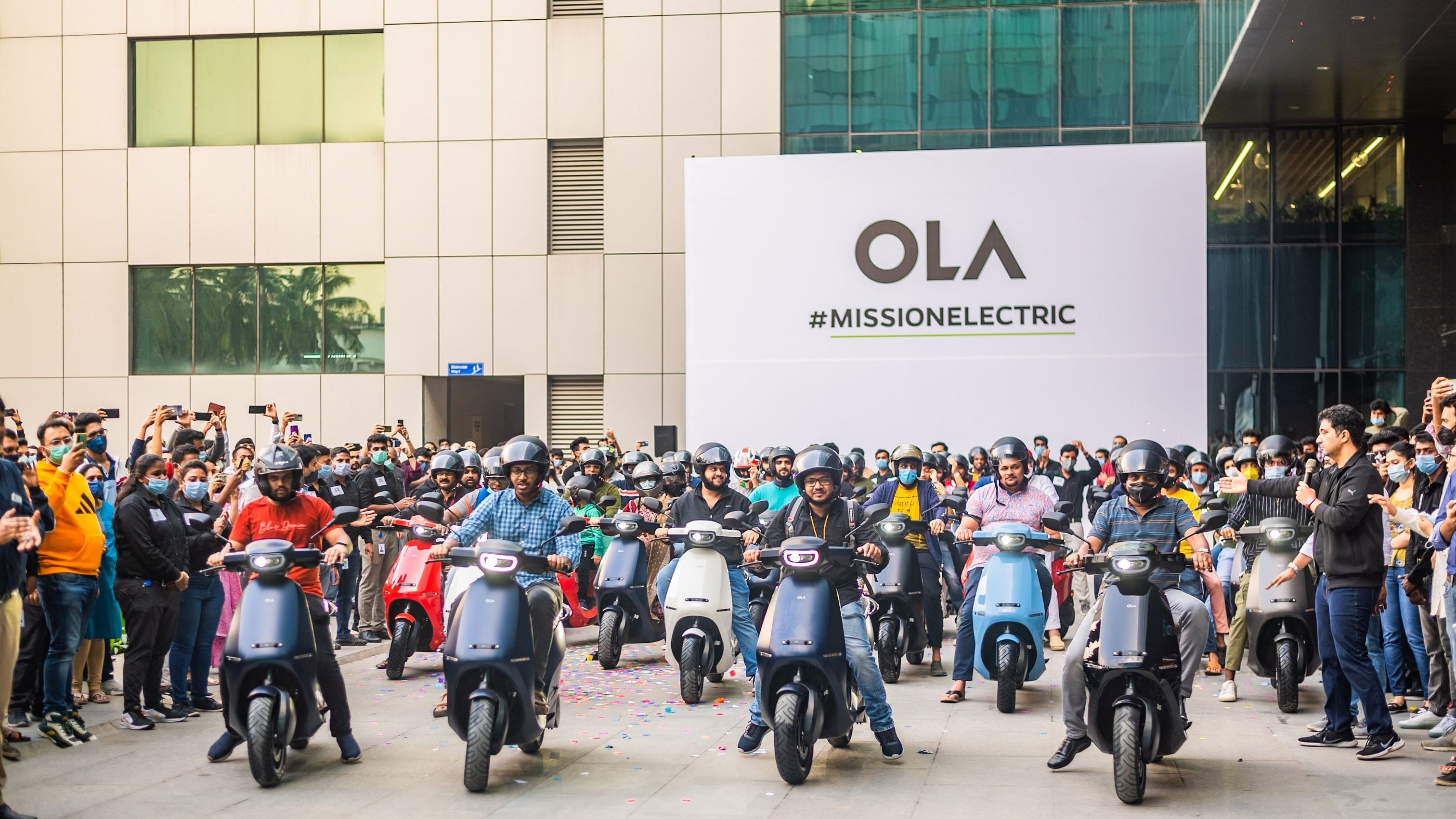
DH Photo
Bengaluru: With an eye on indigenisation of its cells, Ola Electric has pumped $100 million into building the phase-I of its 'Gigafactory', where besides producing lithium-ion batteries, in due course, it hopes to produce solid-state batteries. The company targets on having its vehicles use its home-grown batteries by early next year.
Speaking to media persons on Saturday, Ola’s chairman and managing director, Bhavish Aggarwal, said, “Will have our own cells within our scooters by early next year ... Our goal of doing cell[s] is that we can reduce dependency on imports as well as reduce the cost of EVs.”
Presently, Ola’s electric vehicles run on lithium-ion batteries imported from Korea, Japan, and China. The company has already started making 4860 batteries that have five times more energy than the presently used 2170 cells, but the products are only being deployed for testing. Aggarwal announced that the company was in the very early stages of experimenting with the more stable solid-state batteries, which are yet to take off globally too.
DH Photo
Indigenisation of cell production could effectively cut the cost of cells lower than the global rate of $100 per kiloWatt-hour (kWh). Cells, as is known, constitute a large part of the cost of an electric vehicle.
Ola began building this factory in June 2023, in Krishnagiri district of Tamil Nadu, which also houses its other plant - the Ola FuturFactory - producing electric scooters. The phase-I of the project has installed a capacity of 1.49 GigaWatt-hours (GWh), which will be expanded to 5 GWh in phase-II. The target is to move to 20GWh subsequently.
Ola has availed of subsidies under the Faster Adoption and Manufacturing Electric Vehicle (FAME) scheme. It is also accessing production-linked incentives (PLI). With FAME-II ending in March this year and any extension of the scheme yet to be rolled out, Aggrawal noted, “We are aligned with the government’s direction of tapering off the FAME subsidies and replacing it with PLI.”
Incidentally, the Gigafactory, like the Futurefactory, is being populated by an all-women workforce.